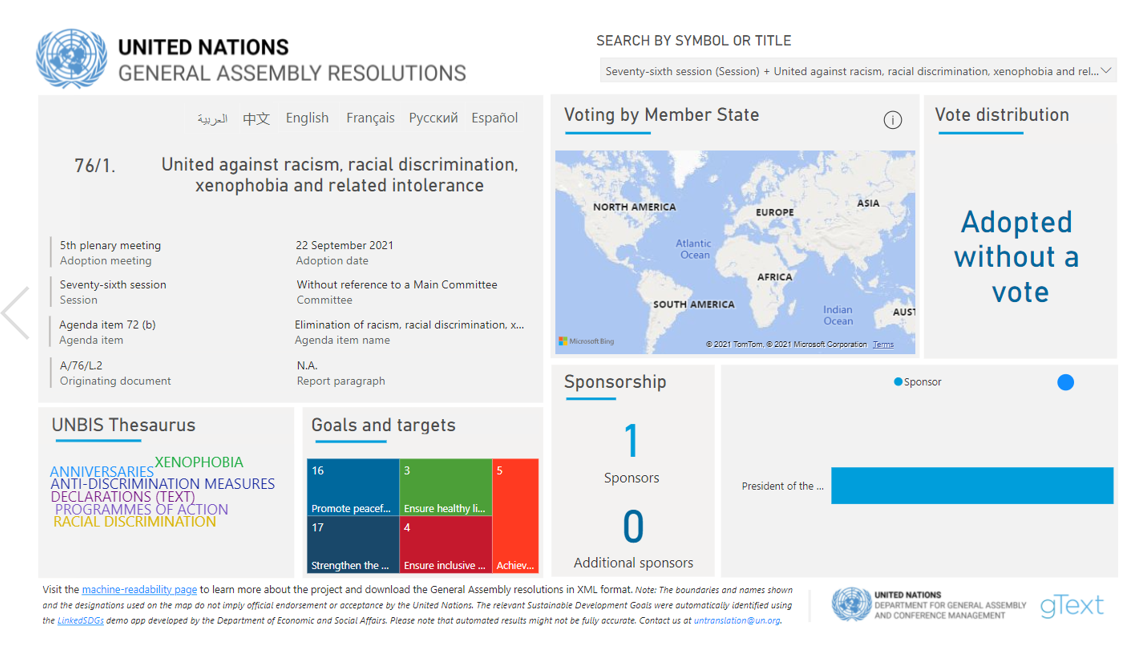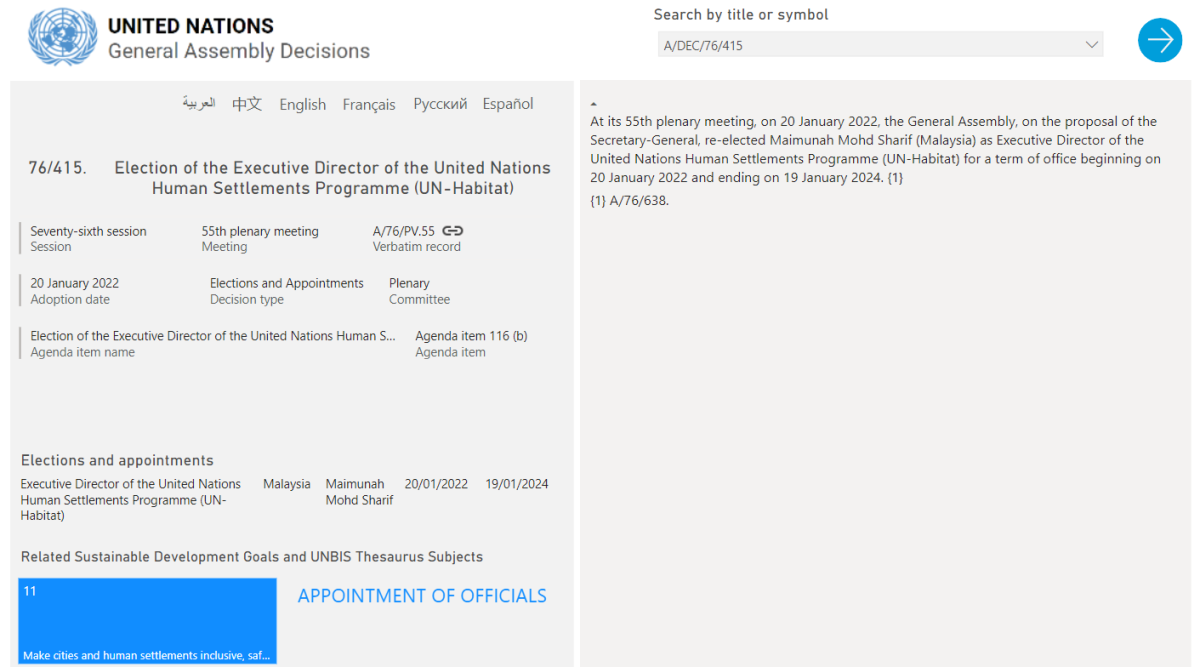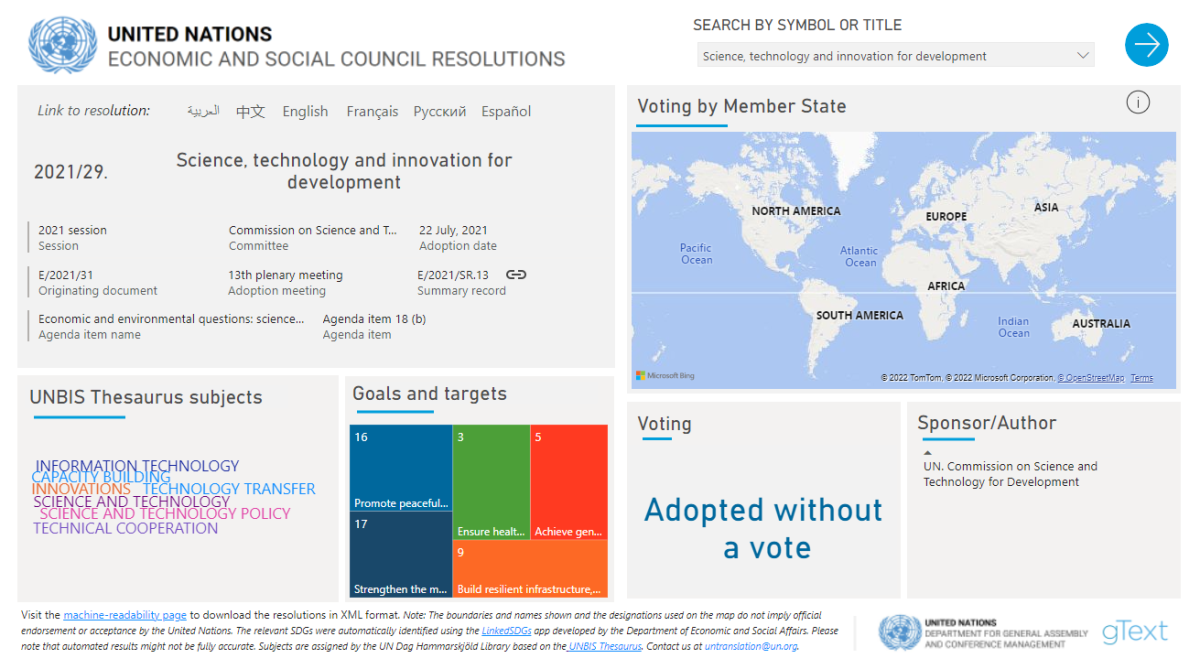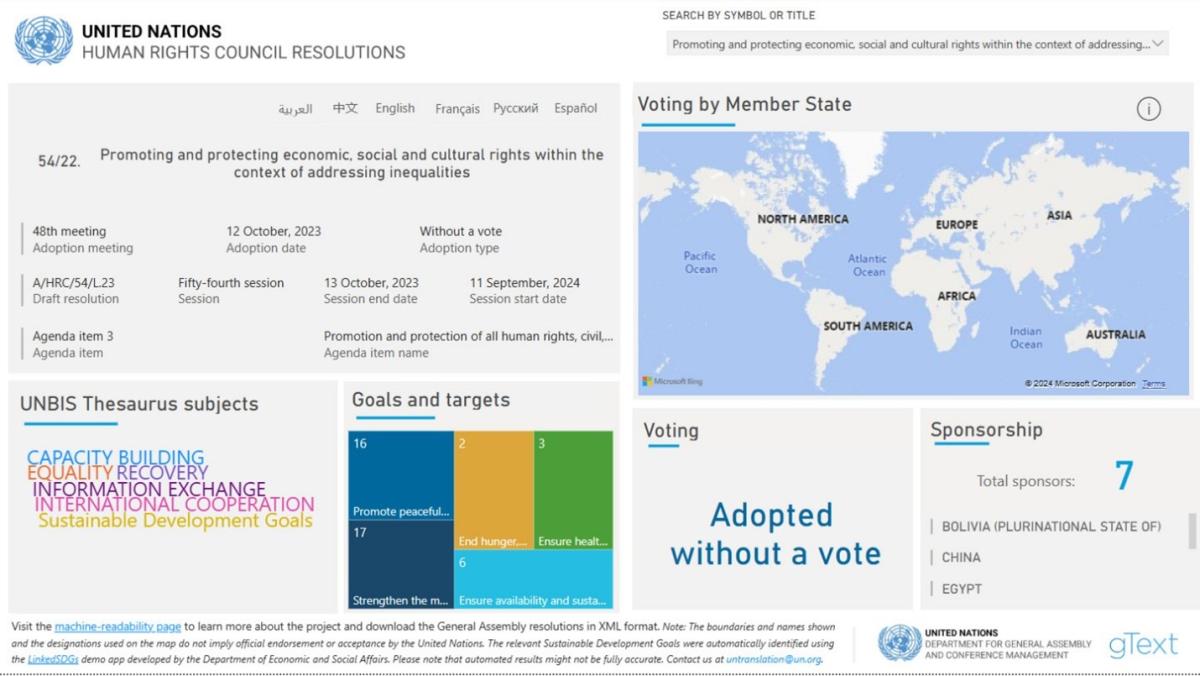Visualizations and machine readability
In line with the Data Strategy of the Secretary-General for Action by Everyone, Everywhere, the Department for General Assembly and Conference Management (DGACM) has worked to identify specific opportunities in conference management in which advanced data integration would yield new, improved and innovative data-driven services and provide greater efficiencies, moving the Department beyond the “paper paradigm”.
Through an innovative use of artificial intelligence and natural language processing technologies, the Department has developed, under its gText project, an application that automatically converts General Assembly resolutions into XML format, using the Akoma Ntoso for the United Nations (AKN4UN) schema. The application also connects to external systems to retrieve and embed additional metadata into these XML files, such as sponsorship information, voting records and related Sustainable Development Goals, targets and indicators, using unique identifiers from the UN SDG Taxonomy, together with related subjects from the UNBIS Thesaurus and EuroVoc. By connecting its applications to the most optimal data source under a new data stewardship model, the Department seeks to leave behind data silos and “connect” rather than “collect” data, minimizing the risk of errors and inconsistencies along the supply chain.
The metadata-enhanced machine-readable documents are used internally to automatically generate the official volumes of General Assembly resolutions, saving countless hours of human effort, as those volumes were, until now, painstakingly compiled by copying and pasting data scattered across several sources. In addition, to facilitate research and the creation of new applications in the natural language processing area, the Department is now making these XML documents available in downloadable format for other entities and researchers to use as their raw material, to experiment in the development of new services and applications that can help to show the relationships between United Nations documents and have those connections presented visually, in graphs and charts that make them clear and understandable.
As a proof of concept and to illustrate the potential of machine-readable texts, the Department has created a series of interactive reports displaying the data contained in the XML files. It is hoped that this will inspire other colleagues and researchers to make full use of this technology and give full life to United Nations documents.
General Assembly resolutions
Click on the image to access the interactive report or download the XML files from the public repository. |
Security Council resolutions
Click on the image to access the interactive report or download the XML files from the public repository. |
General Assembly decisions
Click on the image to access the interactive report or download the XML files from the public repository. |
Economic and Social Council resolutions
Click on the image to access the interactive report or download the XML files from the public repository. |
Human Rights Council
Click on the image to access the interactive report or download the XML files from the public repository. |
UNCITRAL
Click on the image to access the interactive report or download the XML files from the public repository. |
United Nations Environment Assembly resolutions
Click on the image to access the interactive report or download the XML files from the public repository. |
Contact us
For more information, watch the video on machine readability or contact us at untranslation@un.org.
Disclaimer and terms of use
-
The xml files and other related data are made available without warranty of any kind, explicit or implied. The United Nations specifically makes no warranties or representations as to the accuracy or completeness of the information contained in the xml files and other related data.
- Under no circumstances shall the United Nations be liable for any loss, liability, injury or damage incurred or suffered that is claimed to have resulted from the use of the xml files and other related data. The use of the xml files and other related data is at the user's sole risk. The user specifically acknowledges and agrees that the United Nations is not liable for the conduct of any user. If the user is dissatisfied with any of the material provided, the user's sole and exclusive remedy is to discontinue using the material.
- When using the United Nations Corpus, the user must acknowledge the United Nations as the source of the information.
- Nothing herein shall constitute or be considered to be a limitation upon or waiver, express or implied, of the privileges and immunities of the United Nations, which are specifically reserved.







